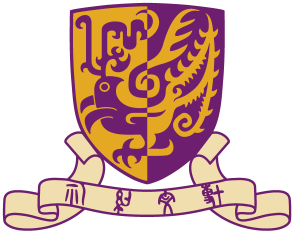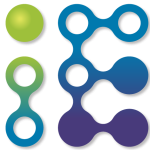Each student has his or her interests, abilities, and career goals. The IERG programme offers students the greatest flexibility to pursue their career goals by developing their specialities. The IERG programme offers five Streams of Specialization: 1) Big Data: Systems and Applications, 2) Telecommunications, 3) Cyber Security, 4) Networked Systems and Applications, and 5) Information Science.
Students may choose not to specialize in any stream or to specialize in no more than two streams and complete a minimum of 12 units of courses prescribed by the stream.
Applicable for 2025-26 cohort:
For students from other cohorts before 2025-26, please refer to the streams and course list as listed on the programme information applicable to their year of admission to CUHK. Here is the shortcut link to look up the information
Big Data: Systems and Applications
| CSCI3320 | Fundamentals of Machine Learning |
| CSCI4180/ESTR4106 | Introduction to Cloud Computing and Storage |
| CSCI4190 | Introduction to Social Networks |
| ELEG5491 | Introduction to Deep Learning |
| IERG3320/ESTR3306 | Social Media and Human Information Interaction |
| IERG4080/ESTR4312 | Building Scalable Internet-based Services |
| IERG4120/ESTR4328 | Functional Programming |
| IERG4160 | Image Processing and Visual Understanding |
| IERG4230 | Introduction to Internet of Things |
| IERG4300/ESTR4300 | Web-scale Information Analytics (Required) |
| IERG4320/ESTR4324 | Data Science in Practice |
| IERG4330/ESTR4316 | Programming Big Data Systems |
| IERG5050 | AI Foundation Models, Systems and Applications |
| IERG5130 | Probabilistic Models and Inference Algorithms for Machine Learning |
| IERG5250 | Edge AI and Applications |
| IERG5350 | Reinforcement Learning |
| IERG5670 | Computational Imaging Systems and Algorithms |
Telecommunications Note 1
| IERG3010/ESTR3300 | Digital Communications |
| IERG3280/ESTR3302 | Networks: Technology, Economics, and Social Interactions |
| IERG3300/ESTR3304 | Introduction to Stochastic Processes |
| IERG4030/ESTR4320 | Optical Communications |
| IERG4060 | Real-time Embedded Systems |
| IERG4100/ESTR4304 | Wireless Communication Systems |
| IERG4110/ESTR4314 | Hands-on Wireless Communication |
| IERG4130/CSCI4130/ESTR4306 | Introduction to Cyber Security |
| IERG4230 | Introduction to Internet of Things |
| IERG4340 | Emerging Technologies in Information Engineering |
| IERG4851 | Cyber Security Laboratory |
| IERG5020 | Telecommunication Switching and Network Systems |
| IERG5040/ENGG5392 | Lightwave System Technologies |
| IERG5100/ENGG5303 | Advanced Wireless Communications |
| IERG5110 | Signal Processing in Wireless Communications and Sensing |
| IERG5200 | Channel Coding and Modulation |
| IERG5230 | Algorithms and Realization of Internet of Things Systems |
| IERG5280 | Mobile Networking |
| IERG5330 | Network Economics |
Cyber Security
| CSCI3150/ESTR3102 | Introduction to Operating Systems |
| IERG3070 | Operating Systems in Practice: A Linux Perspective |
| IERG4004/FTEC4004 | E-payment Systems and Cryptocurrency Technologies |
| IERG4120/ESTR4328 | Functional Programming |
| IERG4130/CSCI4130/ESTR4306 | Introduction to Cyber Security (Required) |
| IERG4150/ESTR4322 | Introduction to Cryptography |
| IERG4210 | Web Programming and Security |
| IERG4220 | Secure Software Engineering |
| IERG4350 | Cloud Computing Security |
| IERG4360/ESTR4326 | Blockchain and Applications |
| IERG4851 | Cyber Security Laboratory |
| IERG5240/ENGG5383 | Applied Cryptography |
| IERG5310 | Security and Privacy in Cyber Systems |
| IERG5320 | Digital Forensics |
| IERG5360 | Program Representation, Modeling and Understanding for Software Security |
| IERG5590 | Advanced Topics in Blockchain |
Networked Systems and Applications Note 2
At least 3 units from:
| CSCI3150/ESTR3102 | Introduction to Operating Systems |
| IERG3070 | Operating Systems in Practice: A Linux Perspective |
And the remaining units from the following:
| IERG3050 | Simulation and Statistical Analysis |
| IERG3280/ESTR3302 | Networks: Technology, Economics, and Social Interaction |
| IERG3300/ESTR3304 | Introduction to Stochastic Processes |
| IERG4080/ESTR4312 | Building Scalable Internet-based Services |
| IERG4090/ESTR4302 | Networking Protocols and Systems |
| IERG4130/CSCI4130/ESTR4306 | Introduction to Cyber Security |
| IERG4180/ESTR4308 | Network Software Design and Programming |
| IERG4190 | Multimedia Coding and Processing |
| IERG4210 | Web Programming and Security |
| IERG4831 | Networking Laboratory I |
| IERG4841 | Networking Laboratory II |
| IERG4851 | Cyber Security Laboratory |
| IERG5090 | Advanced Networking Protocols and Systems |
| IERG5250 | Edge AI and Applications |
| IERG5280 | Mobile Networking |
Information Science Note 3
| CSCI3160/ESTR3104 | Design and Analysis of Algorithms |
| IERG3010/ESTR3300 | Digital Communications |
| IERG3050 | Simulation and Statistical Analysis |
| IERG3280/ESTR3302 | Networks: Technology, Economics, and Social Interaction |
| IERG3300/ESTR3304 | Introduction to Stochastic Processes |
| IERG4100/ESTR4304 | Wireless Communication Systems |
| IERG4190 | Multimedia Coding and Processing |
| IERG4300/ESTR4300 | Web-scale Information Analytics |
| IERG4320/ESTR4324 | Data Science in Practice |
| IERG5154/ENGG5301 | Information Theory |
| IERG5200 | Channel Coding and Modulation |
| IERG5254 | Network Information Theory |
| IERG5290 | Network Coding Theory |
| IERG5380 | Quantum Information Processing |
| IERG5400 | Theory of Probability |
Notes:
1 The Telecommunications Stream is equivalent to the Communications Stream for cohorts before 2023-24.
2 The Networked Systems and Applications Stream is equivalent to the Internet Engineering Stream for cohorts before 2023-24.
3 The Information Science Stream is equivalent to the Enrichment Stream for cohorts before 2019-20.
How and when to apply for a letter of certification?
When you have fulfilled all the graduation requirements, and completed the stream requirements, please provide the following information and email to the department at around mid-July:
- Your full name
- Your student ID
- The stream(s) of specialization
- The list of courses with grades that you have completed to fulfill the stream requirements
- An unofficial transcript downloaded from CUSIS
- Your correspondence address
Notes: The department will check and process the applications. A letter of certification will be mailed to the successful applicants around mid-August.



